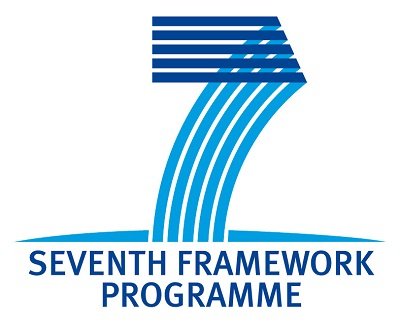





Micro-RIP - Functional analysis of uncultivated microbes
using
radioisotope probing
(PI Marja tiirola, University of Jyväskylä, European Research
Council (ERC) Consolidator project 2014-2019)
"This project has received funding from the European Union’s Seventh Framework Programme for research, technological development and demonstration under grant agreement no 615246. The area of the activity is life sciences."
Metaomics are emerging fields in applied microbiology
to study diversity and functions of microbial assemblages using high-throughput
methodologies. Even if the currently available omics-approaches are excellent
tools for generating new hypotheses, massive sequencing alone is not the most
economical or informative way for resolving microbial functions or regulation
in environmental samples. Environmental microbiology calls for more advanced
research methods to study these topics.
The proposed project introduces an
unconventional technology, radioisotope probing (RIP). This approach is based on the invention of
radioactivity measurement via pH analysis. When the analysis of radioactivity
is now combined with semiconductor sequencing, the technology offers two-dimensional
analysis of millions of molecules on a sequencing chip. Actually, it is staggering
that next-generation sequencing (NGS) plates are currently wasted after the
sequencing effort. Hybridization of experimentally labelled RNA and
radioactivity measurement would provide a second dimension for the sequencing
analysis, facilitating various new applications in environmental microbiology,
as well as potential applications for the needs of biochemistry and medical
research.
The aim of this project is to develop and test RIP
applications for studying regulation of microbial decomposition, which is the
key question, when predicting the effects of climate change. It is hypothesized
that more frequent flood, droughts and redox fluctuations can prime the
biodegradation of boreal carbon stores. Regulation of microbial processes,
including decomposition, includes 1) the structure of microbial communities,
which is dependent of the etiology of the sample; 2) regulation of gene
expression, and 3) mRNA processing and half-life. We aim to explore these
mechanisms in community-level analysis, using novel applications of the RIP
technology and interpreting the results of experimental manipulations by
systems biology tools.
The project develops and tests three novel
radioisotope probing applications to analyse functional diversity, transcriptional
regulation and mRNA processing in microbial communities, especially
focusing on prokaryotic species. Functional diversity of microbes utilizing model
and complex substrates is studied in terrestrial and aquatic communities using
time-series sampling and labelling experiments. Prevailing mechanisms in the
cellular regulation of microbial communities are investigated using
community-level methylation and regulatory RNA patterns. The effect of external
stressor (redox fluctuations and toxicans) on these patterns is analysed using sequencing
and RIP to reveal the mechanisms regulating the processes beyond mere community
composition.
The project improves our understanding of
the genetics and epigenetics of microbial communities, aiming to shed light on the
burning question, how the decomposition of organic matter is regulated.